This year, NSK State puts forward a different kind of approach to the issue of immigrants at the Venice Biennale pavilion as well as the alternative pavilion in Vienna.
NSK was formed in 1984 in Ljubljana via the collaboration of the Irwin, Laibach and Scipion Nasice Sisters Theater groups, but it later developed by adding the groups Noordung, New Collectivism and The Department of Pure and Applied Philosophy. In 1992, on the background of the Yugoslavian war, the constitution of Slovenia as an independent state and later on becoming part of the European Union, NSK becomes NSK State.
NSK State continues to function as a form of a question or an interrogation machine, leaving the participants to decide on their own what is NSK’s orientation. Forming a state without borders has been postulated as a State in Time. Although there is no gain to get involved into actual politics, the presented projects interfere with the immigration issue that EU is facing. The interrogation is part of the pavilion’s experience, An Apology will be presented as 100 answers in Venice as well as Vienna.
Within the conference held on the opening of the NSK State pavilion, Slavoj Zizek had a speech that expresses his points of view. His approach is similar to that of Thomaž Mastnak whose Apology for modernity theoretically initiates the manner of building the pavilion. Although the two did not initially have such similar visions, Slavoj Zizek and Thomaž Mastnak presented the immigrant issue in a similar manner, with small differences in their approaches. For the pavilion to be in agreement with the citizens’ opinion, 1500 of them have been asked to answer whether or not they agree with the statement from the apology. Even though Thomaž Mastnak appears to be more radical when addressing immigrants, while Slavoj Zizek criticizes the UE measures, these people can become citizens of the NSK global state. Moreover, the temporary passport office works with the help of immigrant communities for protecting the immigrants and citizens who wish to acquire a new citizenship in Italy or Austria.
On this occasion, there is a new edition of an anthology of texts in which a series of guests debate the current situation of Europe and a newspaper type publication that keeps Thomaž Mastnak’s title, Apology for modernity. It contains historical references for NSK, how the present pavilion came to be from the IRWIN committee’s perspective as well as Ahmet Ögüt’s preliminary sketches.
Another innovative side of the project is the fact that the Irwin group consists of the commissaries for the two pavilions; the curators were chosen and given the theme to work on according to the NSK State vision. Zdenka Badovinac and Charles Esche were chosen as curators of the pavilion, with Charles Esche choosing Ahmet Ögüt, an NSK State citizen, to design the pavilion.
Ahmet Ögüt did not just build an installation, but an experience through which the answers in An Apology remain private. The state’s mechanisms will be analyzed with bureaucratic and experimental tools, as the artist states when preparing the work: “the notion of the State, the definition of citizenship and the Kafkaesque elements of bureaucracy will be questioned through the conceptual and physical experience of gravity”.
Within Irwin one can identify connections with the Irwin Live project of 1998 in Warsaw that also defies the law of gravity. The performance-installation that took place at the CCA is based on the inversion of gravity, a law that Ahmet Ögüt also explored in the Venice Pavilion. The group members suspended themselves from the ceiling and stayed that way throughout the exhibition opening.
The experience is both theoretical and physical. In Venice, Ahmet Ögüt invites visitors to cross an unreal space in which the optical illusion and the semi-inverted gravity form a unique physical experience. It is like a metaphor for the traumas and long waits endured by immigrants, even though the space does have a does of humor. The sensation stays with you for quite some time after participation. This physical experiences is related to the path and the bureaucratic system the immigrants have to face.
For some participants, the experience was more physical than they expected after total loss of balance, falling and hitting the lower wall. Later on, participants were warned and the vigilant ones were able to bypass the experience and going straight to the temporary passport office.
Following the itinerary, the participants can become citizens of a global state in which the citizenship of individuals is a secondary concern. The passport offices will run the same course as the rest of the pavilions with new members being accepted in NSK State, a state which currently has over 15.000 citizens. NSK State remains a global state where acquiring a citizenship is not a problem. The development of the aspatial spaces has been going on since its inception even though there have been known actions based on passport systems. In the NSK State passport we read: “Art is fanaticism that demands diplomacy”. This “intention” can be linked to those in the Laibach statuses: “Laibach is a mission which demands fanaticism” and “Art is a high mission and demands fanaticism”. We can stay up to date with all of these via citizen initiatives, with New York State Reserve or NSK News Chanel being two of these.
The opening of NSK State appears to be one of the most important events that is part of the preview week. To get into the pavilion you had to wait in a line that stretched across an entire street even two hours after the doors were opened. However everyone could take part, together with the Irwin members, in a physical experience and party with music by NSK members, Laibach, in a cosy atmosphere.
Secondary to the pavilions concept, there is a series of questionnaires. There are different questions for each pavilion. In Venice the focus was on European patrimony and in Vienna on Europe and art seen through the eyes of immigrants. Interrogation seems to be the MO of this year.
Both pavilions can be considered alternatives – not just the Viennese one – if we were to consider building a NSK State pavilion as ironically addressing the Biennale without denying it. The questioning of the Biennale’s way of functioning based on nationality, the idea of state and citizenship within contemporary Europe – and more – is realized within this pavilion in Venice and the alternative one in Vienna. As Slavoj Zizek said, “the pavilion does not stand in opposition to the national structure of the Venice Biennale, but rather seeks to stand as an independent pavilion that will redefine the idea of the state and proffer a new type of citizenship”.
A state that does not exist single-handedly makes its own pavilion within the Biennale, while not being part of it. This facts altogether shows that this state can exist just like any other, outside the belonging territory. NSK continues to act just like Alexei Monroe said, like an interrogation machine. Questioning the idea of state and citizenship within contemporary Europe – and more – remains a preoccupation for NSK.
The NSK STATE pavilion is at the Venice Biennale between May 11th – July 15th 2017.
Commissioned by the artist group IRWIN (Dušan Mandič, Miran Mohar, Andrej Savski, Roman Uranjek și Borut Vogelnik).
Artist: Ahmet Ögut.
Curators: Zdenka Badovinac, Charles Esche.
Director: Mara Ambrožič.
POSTED BY
Nicoleta Papp
Nicoleta Papp (b. 1993) attends an M.A. program at the Art History and Theory, Heritage and Curating department of the Art and Design University in Timișoara. She holds a B.A. from the same departmen...
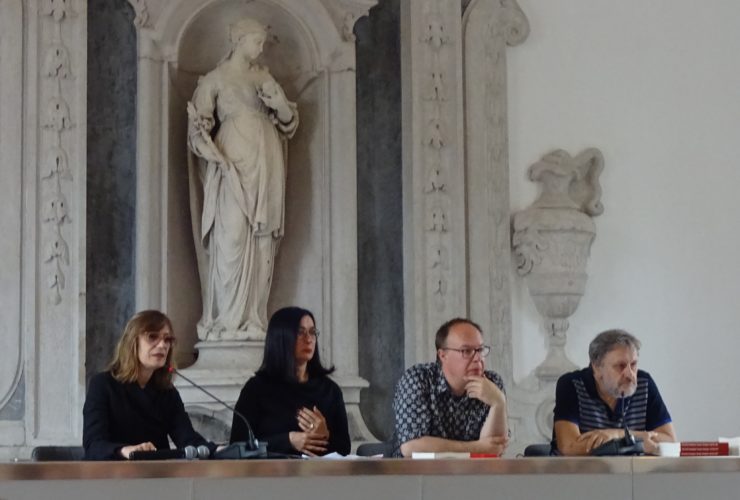
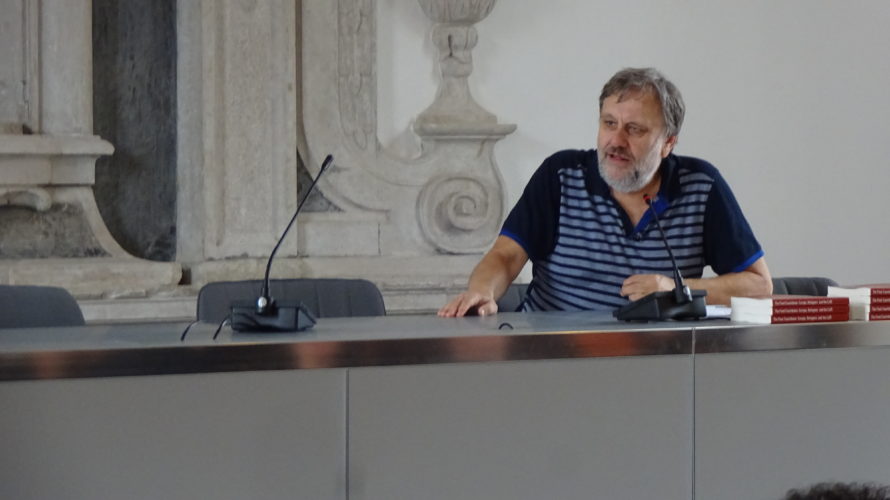
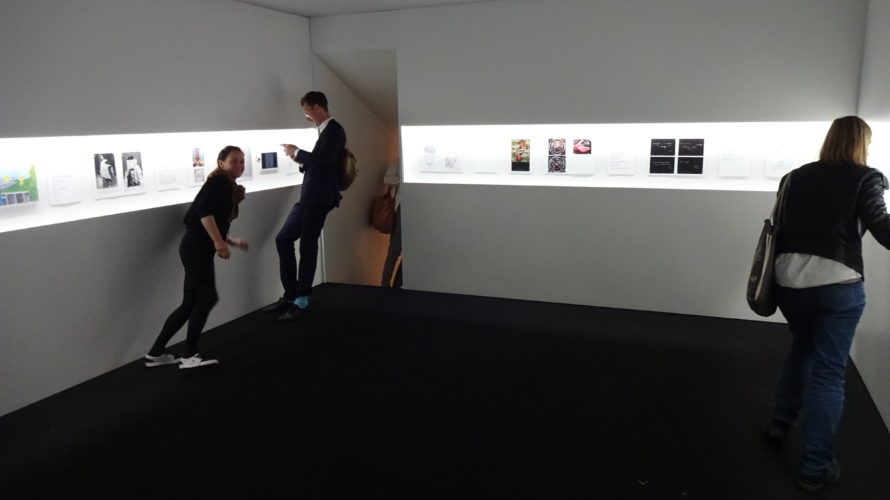
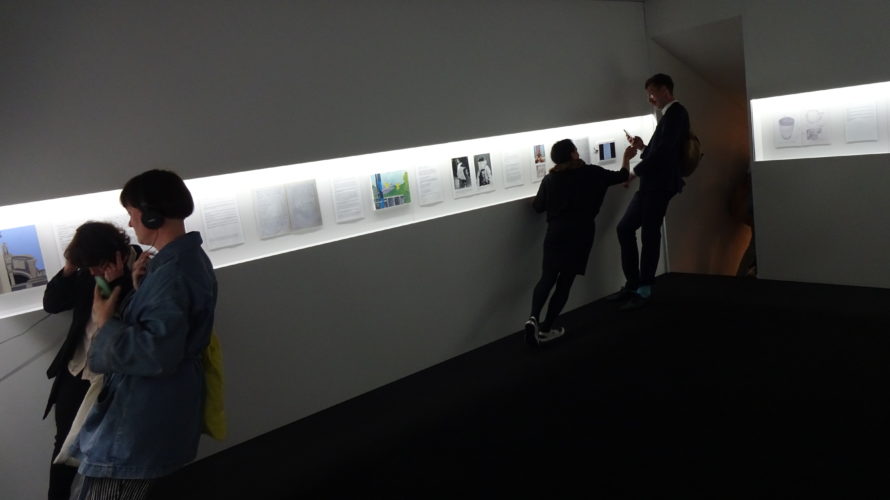
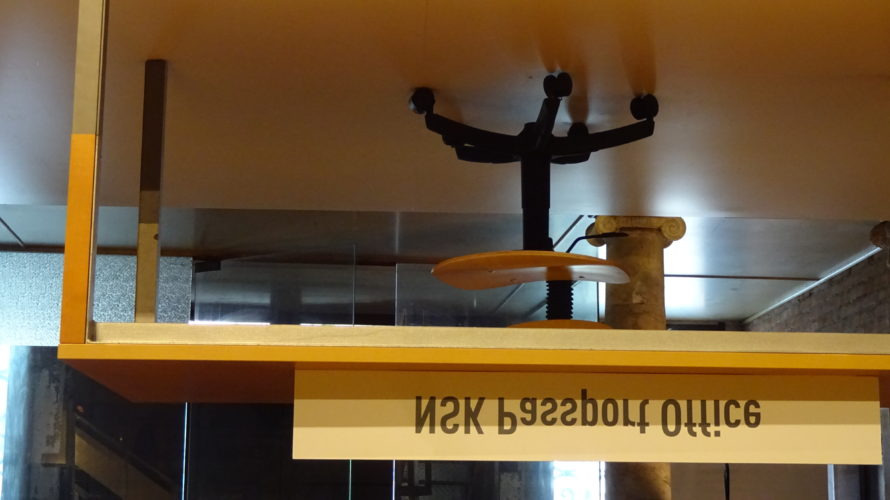
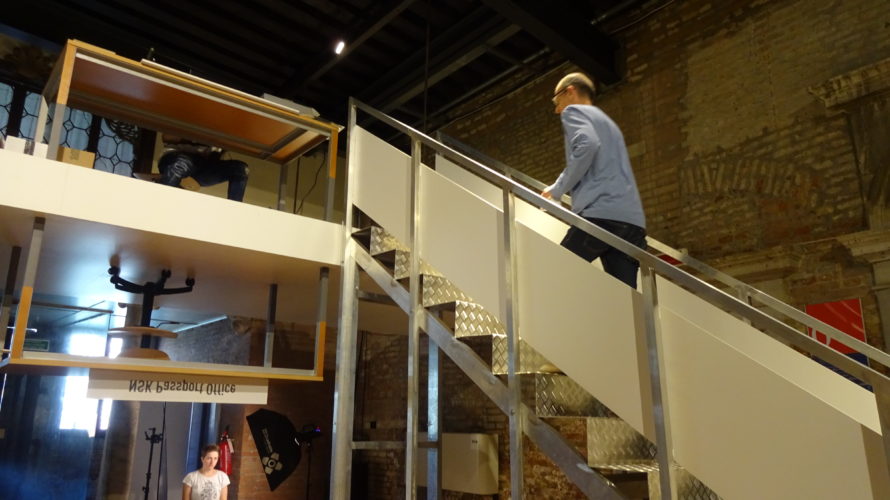
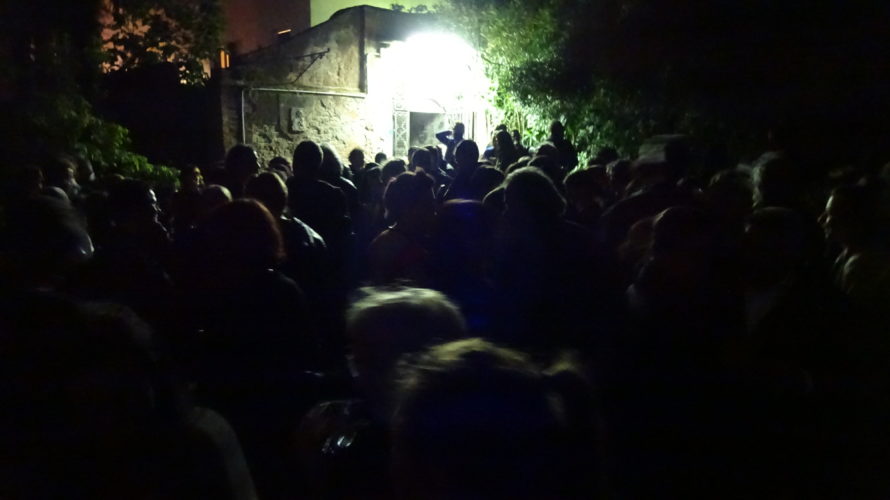
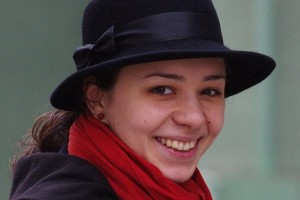
Comments are closed here.